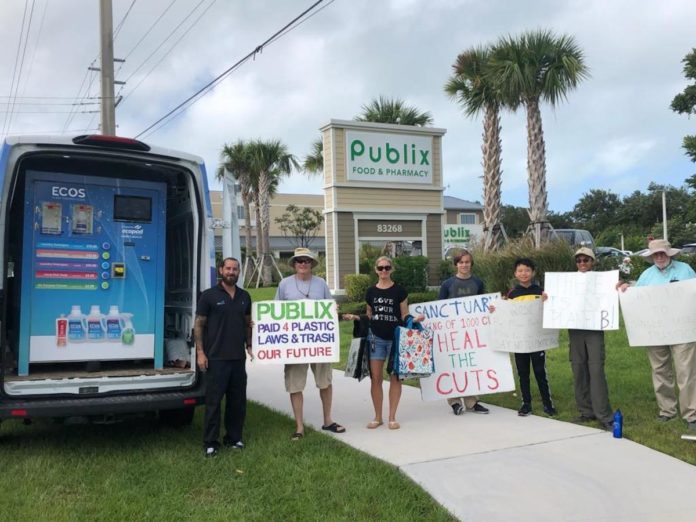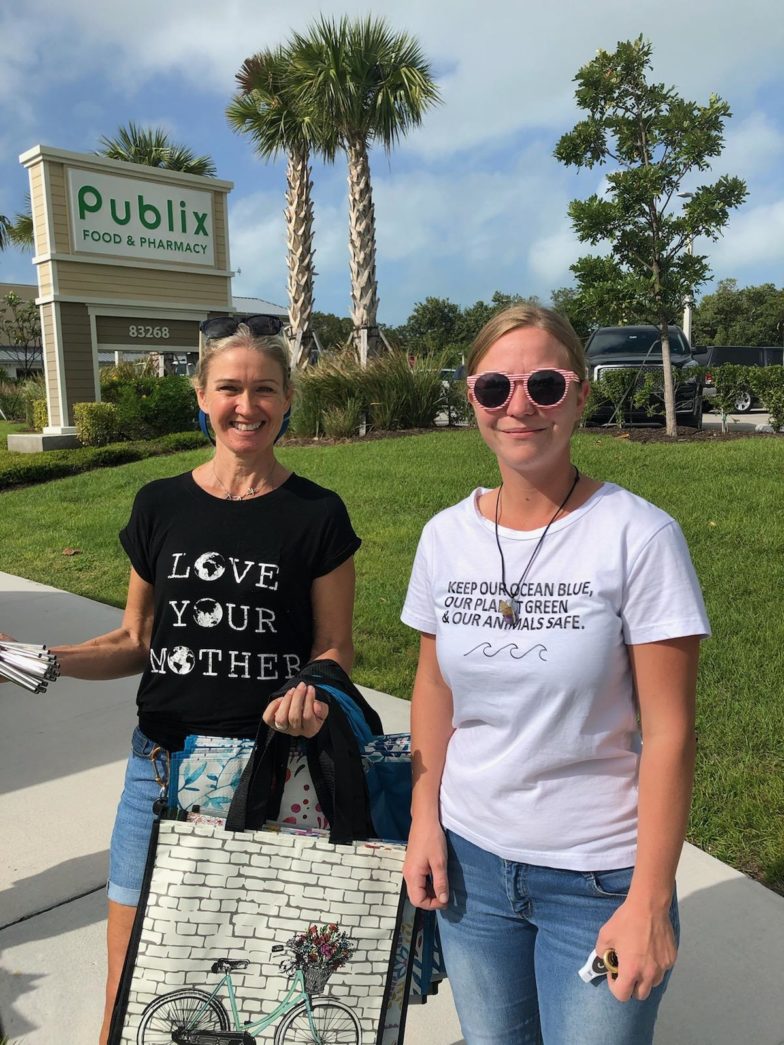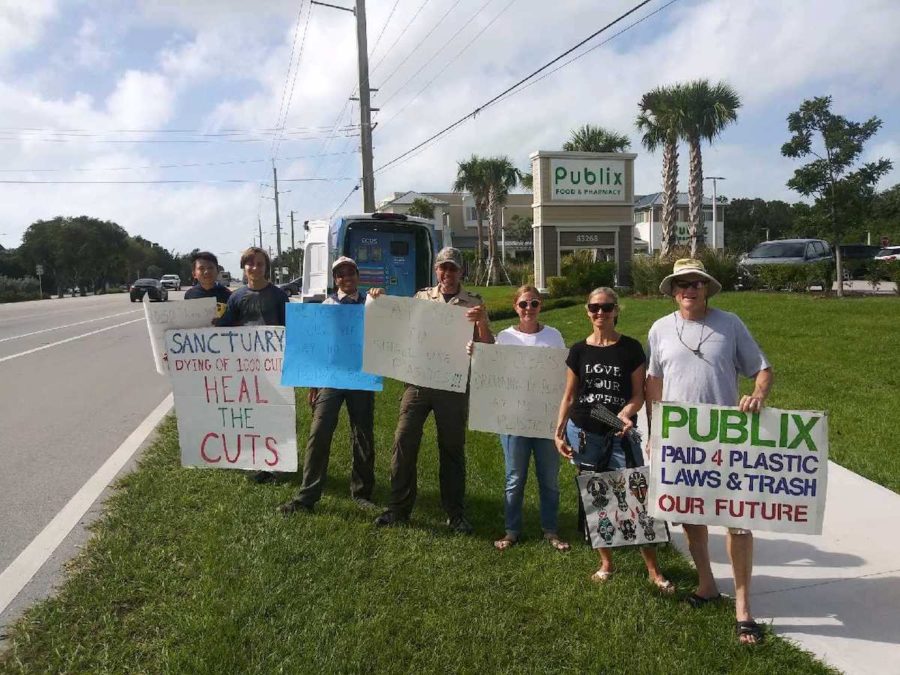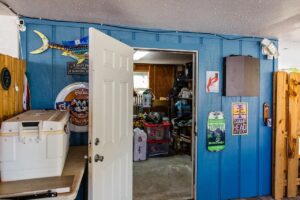
Weekly “plastic bag protests” are popping up in front of Publix supermarkets all around the state. Ostensibly, they’re about banning plastic grocery bags; a deeper look reveals the latest chapter in the “Home Rule” battle.
“I’m definitely pretty pissed off about it,” says Lisa Merritt, who participated in the kickoff protest on Jan. 11 at the Islamorada Publix. “Plastic bags should be banned immediately, along with a few other things. They’re killing our animals and polluting our oceans.”
Merritt, who lives in Tavernier, spends her time on the water kayaking, fishing with her husband and otherwise enjoying the local environment. She does her part to steward the environment, picking up plastic trash anywhere she sees it. “When plastic bags get out on the water, they tangle up in the mangrove roots and break down into a million pieces,” she says. “Each one is a fish killer. They eat it because they think it’s food, and then we eat them. It’s awful.”
The master gardener voices her frustration with the current legislative status on plastic bags. “Our community wants to get rid of this trash, but our right has been taken away from us to do anything about it because of Publix. It’s ridiculous that they have all of this sway.”
Publix is a member of the Florida Retail Federation (FRF) along with other corporations like Walmart, CVS, Target and Walgreens. Cities attempting to enact local bans point to the FRF lobbying group as the driving force behind the public bag preemption laws to which Merritt refers.
In 2008, Florida became the first state to preempt local plastic bans and fees, citing difficulty in enforcement across jurisdictions and ability to provide services to consumers as key points. The state has also taken away the ability for local governments to make their own determinations on a variety of other local issues, including everything from bans on polystyrene “to go” containers to regulation of smoking on beaches, parks and playgrounds to vacation rentals. A ban on local straw ordinances was ultimately vetoed by Gov. Ron DeSantis.
Barry Wray, the president of the Florida Keys Environmental Coalition, helped organize the local protests as part of the larger state movement to preserve home rule over issues like plastic bag bans. “These bans on banning are the real problem,” he says. “Preemption laws prevent us from taking prudent steps to improve what we do. That’s reprehensible,” said Wray. “The fact that we’re handcuffed and can’t do what we want to do to improve our home is what’s wrong. It steals our community’s natural right to ‘Home Rule.’”
With legislative session underway in Tallahassee, several bills have been filed in the House and Senate related to bags and plastic products. Senate Bill 40 was introduced this week to prohibit a store or food service business from providing carryout bags made out of plastic film, while Senate Bill 182 and House Bill 6043 would delete preemptions of local law related to regulation of auxiliary containers, wrappings or disposable plastic bags. Bills sit in committee.
FRF, the state’s premier trade association of 80-plus years, has said it looks forward to continued dialogue on issues such as plastic bags and polystyrene products.
“Florida’s retailers have a vested interest in a healthy and sustainable Florida,” said FRF president and CEO R. Scott Shalley. “Our retailers spend millions of dollars every year on identifying ways to reduce our collective ecological footprint. We will continue to focus on solutions that are based on science and the importance of responsible consumer education and behavior.”
Calling for a sustained protest, Wray hopes the continued weekly presence in front of all the Publix in the Keys will help people realize the supermarket chain’s role in banning local bans on plastic and hopefully move the needle in favor of home rule on this and similar issues.
The Weekly was unable to reach Publix for comment.




















